Sarah Aarons Named 2023 F. W. Clarke Medalist
February 13, 2023
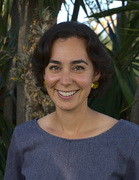
Sarah Aarons, Assistant Professor at the Scripps Institution of Oceanography (USA), will receive the 2023 F. W. Clarke Award this July. The Clarke Award honors a single outstanding contribution to geochemistry or cosmochemistry by an early-career scientist. Dr. Aarons is recognized for using novel applications of radiogenic and non-traditional stable isotope systematics to identify dust sources in dust traps and ice cores, understand mineral fractionation associated with dust transport, and unravel the processes responsible for crustal generation at the Hadean/Archean transition.
Elements: Halogens: From Planetary Surfaces to Interiors
October 06, 2022
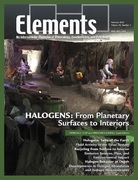
The halogen-group elements (F, Cl, Br, and I) are common in the terrestrial inventory, though often present in trace amounts in many Earth and planetary materials. The halogens play a key role in a variety of geologic environments and processes, from mineralization to their influence on the composition of Earth's atmosphere when released as oceanic, volcanogenic, and anthropogenic emissions. Halogens act as "fingerprints" of fluidmediated processes on Earth and other planetary bodies. These "bioessential" elements are also critically important to human health. In this issue of Elements, we explore the role that the halogens play in shaping diverse planetary systems, from the surface of planets to their interiors. We also review the techniques that are suitable for the analysis of halogen elements and of isotopes of Cl and Br in terrestrial and extraterrestrial materials.
Current Geochemical Society members can access this issue now via the Elements website using your email address (UserID) and member number (Password).
Stuart Wakeham Receives Treibs Award from OGD
April 27, 2022
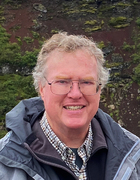
Prof. Stuart Wakeham, Emeritus Professor of the Skidaway Institute of Oceanography, was recently named the 2021 recipient of the Alfred Treibs Award. Presented by the society's Organic Geochemistry Division, the award is given for major achievements, over a period of years, in organic geochemistry. Prof. Wakeham is recognized for pioneering work on fluxes and compositional changes of marine organic matter at the molecular level, on microbial biomarkers in marine oxygen-deficient zones, and on molecular proxies.
GS Statement on Ukraine Crisis
March 10, 2022

The Geochemical Society condemns the war, violence, and the loss of civilian life in Ukraine. We stand by the country's citizens and our Ukranian colleagues and their families who are affected. Our greatest desire is for peace and an end to the suffering and displacement caused by this crisis.
While issues of survival are taking precedence for many people, the work of science also continues, so we offer these resources as a small contribution to cooperation and goodwill. To the extent it is possible for scientists in Ukraine to participate in a conference, the EAG and GS will offer free participation for them at the upcoming 2022 Goldschmidt Conference.
A growing list of research institutions in Europe and elsewhere are offering to host refugee scientists through a community initiative. Learn more
Marilyn L. Fogel Named 2022 V. M. Goldschmidt Medalist
February 14, 2022
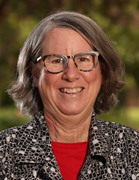
Marilyn L. Fogel, Professor Emerita at the University of California, Riverside (USA), will receive the 2022 Victor M. Goldschmidt Award. The Goldschmidt Award is the society's highest honor, presented annually for major achievements in geochemistry over a career. Dr. Fogel revolutionized the use of stable isotopes in ecology, geochemistry, and cosmochemistry. Her research ranges from stable isotope fractionation in photosynthesis, to tracking the anthropogenic impact of the colonization of Australia, to the understanding of cosmochemical processes in meteorites.
Yige Zhang Named 2022 F.W. Clarke Medalist
February 14, 2022

Yige Zhang, Assistant Professor at Texas A&M University (USA), will receive the 2022 F.W. Clarke Award this July. The Clarke Award recognizes an early-career scientist for a single outstanding contribution to geochemistry or cosmochemistry published either as a single paper or a series of papers on a single topic. Dr. Zhang is recognized for his contributions to the application and refinement of lipid biomarker proxies for paleotemperature and atmospheric CO2 reconstructions, including development of the "Methane Index" and "Ring Index".
Xiangdong Li Named 2022 C.C. Patterson Medalist
February 14, 2022
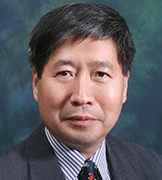
Xiangdong Li will receive the 2022 Clair C. Patterson Award, which recognizes an innovative breakthrough of fundamental significance in environmental geochemistry, particularly in service of society, consisting of either a single outstanding contribution or a short series of papers published within the last decade. Prof. Li holds the positions of Dean of Faculty of Construction and Environment, Director of Research Institute for Sustainable Urban Development, Chair Professor of Environmental Science and Technology, and Ko Jan Ming Professor in Sustainable Urban Development at The Hong Kong Polytechnic University. He is recognized for his innovative and dynamic work in environmental biogeochemistry, including research in the fields of regional contamination, urban air PM2.5 pollution, and the origin and dissemination of antimicrobial resistance.
Remembering William “Bill” Reeburgh (1940-2021)
December 15, 2021
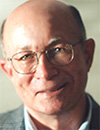
Professor William S. Reeburgh, known to friends and colleagues as Bill, died in July. He was a Geochemistry Fellow and active supporter of the Geochemical Society for many years. He and his wife, Carelyn, established the Endowed Biogeochemistry Lecture in 2016 and it is now an important part of the annual Goldschmidt Conference.
Born in 1940 in Port Arthur, Texas, Bill received his B.S. in chemistry from the University of Oklahoma and a Ph.D. in oceanography from Johns Hopkins University. He was professor and chair of Marine Science at the University of Alaska, Fairbanks for many years. In 1993, he moved to the University of California, Irvine as a founding professor of the university's Department of Earth System Science.
According to a press release from UCI:
"Bill Reeburgh's research contributed enormously to our understanding of the global methane cycle, and it was once said that he was to methane what Dave Keeling was to CO2. He recognized that methane entering the atmosphere and oceans represents the small imbalance between very large methane production and oxidation sinks resulting from microbial activity in sediments and soils. He demonstrated an important new sink mechanism for methane in oxygen-free environments, but had to convince skeptical microbiologists, as no microbe had then been discovered with this metabolism. To do this, Bill used what he called "the 3R's" – documenting routes, reactions and rates by combining tools ranging from sediment reaction-diffusion modeling, isotope labeling and stable isotope distributions to build an incontrovertible case. Many of the measurements came from favorite field sites in Skan Bay, Alaska and the Black Sea."
His important contributions to the fields of biogeochemistry and global elemental cycling were recognized by the GS and EAG in 2018 when Bill was named a Geochemistry Fellow. He was also a fellow of the American Geophysical Union, the American Academy of Microbiology and the American Association for the Advancement of Science.
Bill and Carelyn were married for 54 years and raised three children together. On retiring from UCI, Bill moved to Vancouver, Washington where he enjoyed woodworking, spending time with his six grandchildren, and serving on various scientific advisory committees, including the GS Strategic Planning Committee.
Bill will be missed by his many friends and colleagues in the Geochemical Society. But his and Carelyn's generosity will be felt long into the future as the Endowed Biogeochemistry Lecture continues to recognize innovative science in this field.
The Geochemical Society has planted a tree in memory of Bill Reeburgh. You can also plant a tree in his name.
Source:
Remembering Professor William "Bill" S. Reeburgh - UCI Physical Sciences Communications
Recognizing a Broader Spectrum of Achievement
July 29, 2021
Excellence in geochemistry can be defined in many ways. Of course, this includes publication of novel discoveries, but it also includes teaching, capacity building, influencing policy making, science communication, and much more. Recognizing this, the Geochemical Society has broadened the definition of excellence we use in many of our award criteria.
The GS is also committed to increasing diversity in geochemistry and among its formally recognized inspirational and prominent figures. We seek to promote and encourage diversity and inclusion while furthering equity, a true sense of belonging, and success for all people. In particular, the society is keen to encourage talented researchers from underrepresented groups to serve as nominators and to be nominated for society awards.
Everyone in the geochemistry community is invited to participate in this process. Check out this list of frequently asked questions, which helps to demystify the process.
To submit a nomination, get started by reviewing the list of awards and their criteria. Nominations for our awards and special lectures are due by October 31.
GS to Add Early Career Members to its Board of Directors
July 26, 2021
Students, postdoctoral scholars, and other early career scientists form a crucial segment of the Geochemical Society's membership. To make sure that we consider the needs of this population, the society is adding two new seats on its board specifically for early career researchers (ECR). The board is responsible for governing the organization and determining how our programs can best serve the international geochemistry community. Serving on the board is an opportunity to develop as a leader, meet colleagues from around the world, and make a real contribution to the society and larger community.
Early career scientists may self-nominate or be nominated by others for this role by August 20, 2021.